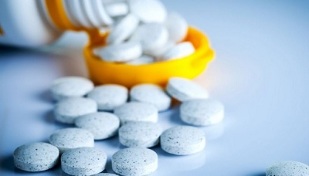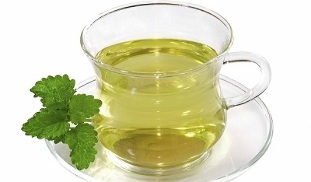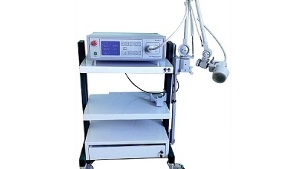Inflammation of the prostate occurs in various forms and reaches different levels. Calculus prostatitis is a disease characterized by the formation of stones in the prostate with subsequent dangerous consequences.
What is this disease?
Calculus prostatitis refers to a relatively rare form of prostate problem. It develops against the background of chronic inflammation and other diseases. It is accompanied by deterioration of visual acuity, urinary problems, pain in the perineum and lower abdomen.
There are two types of disease:
- Correct- stones formed directly in the prostate gland and formed from calcium, a phosphoric acid salt;
- False- conglomerates enter the prostate from other organs and are derived from urea salts.
Entities differ in size and number. Prostate stones are also classified into 2 types:
- Endogenous- acquired in chronic prostatitis, as a complication, increases the likelihood of stagnant processes;
- Exogenous- occurs due to untreated genitourinary system diseases, often inhibiting urine production.
The main danger of chronic calculus prostatitis is the rapid deterioration in the general health of men, the development of complications, the emergence of new inflammation in other systems and organs.
Reason
Stones in the prostate gland are formed for the following reasons: stagnation of prostate secretion and penetration of urine into organs.
The first event is mentioned:
- Acute or chronic prostatitis;
- Adenoma;
- Cancer.
Disorders such as the entry of urine into the prostate canal are caused by the following factors:
- Frequent inflammation of the urinary system;
- Injuries to the genitals;
- Surgical intervention;
- Stones in the bladder and kidneys;
- Urinary catheterization.
The predisposition to calculus disease is also due to several prerequisites:
- Ignore common hygiene procedures;
- Bad habits;
- Irregular intimate life, infrequent sexual intercourse;
- Decreased immune system function;
- Continuous exposure to stress;
- Impact of negative environmental factors;
- Inactive lifestyle;
- Unhealthy food abuse;
- Hormonal failure;
- Exposure to chronic constipation.
Diagnosis: Symptoms and Signs in Men
Signs of calculus prostatitis are expressed in:
- Pain in the groin and lower abdomen, extending to the lower back, pelvis, scrotum;
- Urinary excretion disorder, accompanied by pain syndrome, frequent urination, persistent feeling of fullness;
- Presence of bloody impurities in semen or urine;
- Pain after emptying the bladder or intestines, sexual intercourse, physical activity;
- Erectile dysfunction.
If there is no proper treatment, additional symptoms appear after 1-2 months:
- Increased irritation;
- Fatigue;
- Sleep disorders;
- General disadvantages;
- Severe headache;
- Temperature rise.
To identify calculus prostatitis, you need to see a doctor. Upon initial examination and collection of anamnesis, the urologist is assigned:
- Blood and urine tests, including microflora culture;
- Uroflowmetry monitoring;
- Study of prostate secretion;
- Detection of prostate-specific antigens;
- Ultrasound diagnosis of pelvic organs and prostate gland;
- Test by Meares.
How to treat prostatitis calculus, what to do?
Dealing with stones requires an integrated approach. Calculus prostatitis treatment includes taking medications, support with folk remedies. The effect on the prostate with laser and some physiotherapy techniques also shows itself effectively.
Setup

The first choice drug in the treatment of prostatitis calculus is antibiotics. Certain medications or injections are prescribed depending on the test results.
The following categories of antibacterial drugs are most often recommended:
- Penicillin;
- Fluoroquinolones are considered the most effective. For use, it is necessary to exclude prostate tuberculosis;
- Tetrassin - provokes side effects;
- Cephalosporins - indicated in cases when intramuscular injection is required.
In addition, biologically active additives are included in treatment regimens for calculus pathology, which have complex effects on prostate tissue, activate blood flow, increase cell regrowth, prevent impotence, and prevent complications.
Also included in the therapy scheme are:
- Painkillers;
- Medicines that suppress inflammation and reduce swelling;
- Vitamin complex;
- Preparations to improve blood circulation;
- Drugs that strengthen the immune system.
Is it possible to do a massage for prostatitis calculus?
Many forms of prostatitis are effectively treated by direct glandular sequence, however, in the form of calculus, such effects are excluded categorically. You can undergo a session only after stone removal (and then, only as prescribed by a doctor).
IMPORTANT:some urologists in their work show a direct link between prostate function and normal spinal activity. Therefore, spinal space massage and special effects on biological points can be offered as additional treatments.

The following body parts are kneaded during the procedure:
- Legs - venous blood flow from the pelvic organs is activated and pain is reduced;
- Pelvis - facilitates the process of defecation and urination;
- Back - reduces sperm congestion;
- Waist - stable prostate function.
Folk remedies for prostatitis calculus: the most effective
Folk remedies also help relieve calculus prostatitis and speed recovery.
The following are considered very effective for stones:
- Herbal infusion.Mix naked hernias and black letters in equal parts. Pour one tablespoon of the collection into 0. 5 liters of boiling water. Insist until cool. Drink ½ a cup 20 minutes before each main course;
- Boil Rosehip root. Grind dried roots. Pour 30 g with 250 ml of pure water and cook for one minute over high heat. Leave on for 2 hours and pass through cheesecl cloth. Drink during the day instead of regular tea;
- Parsley broth. Put 30 g of plant seeds in a pot. Pour in a glass of boiling water and leave on low heat for a quarter of an hour. Let cool. Take one teaspoon up to 6 times a day;
- Healing assembly.Mix sage, nettle, chamomile, calamus, bearberry and banana blossoms in equal parts. Stir and take 30 g. Pour the mixture with 0. 5 liters of boiling water and leave for 2 hours. Drink 10 ml three times a day;
- Absorption of hawthorn. Place 3 tablespoons of berries in a thermos. Put 3 cups of boiling water there. After three hours, the infusion is ready. It is recommended to drink 3 glasses of drink a day;
- Mix the juice.Squeeze asparagus juice to 600 ml. This is a portion that must be drunk throughout the day. It is recommended to add beet juice, cucumber, carrot to the liquid (in any concentration of preference to taste);
- Cinnamon mint tea.Put a cinnamon stick and a spoonful of mint leaves into a teapot, pour seven hundred milliliters of boiled water. Wait for the drink to brew, add a little honey and lemon juice (or lemon). Drink after each meal instead of tea;
- Pumpkin seeds. It is recommended to eat thirty before breakfast. It is important that the seeds are raw (not baked).

Laser
Laser therapy is a relatively new technique for curing chronic prostatitis calculus. This technology is most widely used in clinics in Israel. This method consists of the introduction of an instrument called a microbial optical fiber into the body. Due to the smoothness of the beam, the crushed stone does not point, healthy tissue is not affected.
Concrete is crushed into smaller parts and is gradually excreted in the form of sand from the body along with urine. Doctors insist that this method must be combined with medication.
The duration of a session is usually between ten to fifteen minutes. To completely remove and remove stones from the prostate gland, it takes six to ten sessions, depending on the severity of the pathology.
Additional Techniques
Indicated for prostatitis and physiotherapy procedures. Shock wave therapy (SWT) is a technique that allows you to crush calculus effectively.
The mechanism of action of shock wave therapy consists of the effect of acoustic impulses that a person cannot hear on the prostate. They are reproduced using special equipment. Simple waves through healthy tissue, affecting the pathological seal.
The following manipulations are also useful for treatment:

- Ultrasound - reduces pain, suppresses inflammation;
- Magnetic therapy - relieves swelling and improves blood flow;
- Treatment with low frequency current - gives analgesic effect, improves glandular tone, normalizes blood microcirculation;
- Hydrogen sulfide bath - indicated for significant circulatory disorders;
- Application of mud and peat - stimulates tissue healing.
If all else fails, get started. In the process, the prostate is removed along with the stone. Refers to radical methods.
Prevention Tips
You can reduce the risk of calculus prostatitis by following the simple advice given by a urologist:
- Have a regular sex life;
- Use barrier contraceptives (in case of uncertainty about the couple's health);
- Avoid prolonged exposure to cold on the body;
- Exercise daily and visit the gym several times a week;
- Get rid of bad habits (if any);
- Treat the disease in a timely manner and complete the treatment to the end;
- Each year undergoes preventive examinations by therapists and narrow specialists;
- Adjust your daily diet;
- Spend enough time to rest and sleep properly.
Stones in the prostate are a painful and dangerous disease that can cause serious complications. It is important to see a doctor at the first sign of inflammation and, if necessary, undergo a complete diagnosis. The implementation of strict medical recommendations from a man is the key to prevention, and (in the event of an illness) a speedy recovery and return to a full life.
























